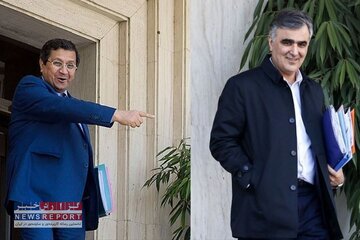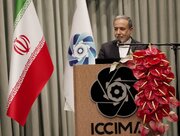It would be risky measurement taken by the head of the government since the first referendum led to the early retirement of Madad, the head of the Iran Statistics Center who cooperated with the government on the plan. Actually his organization divided Iranian society into three clusters for direct payment of cash subsidies, but the categorization prompted much debate and concerns in society deemed it as unfair and confused.
However at a live interview with the state-run TV on Friday, Ahmadinejad again stressed that implementing subsidy reform plan based on the 200 trillion rials (20 billion dollars) revenue passed by the Parliament to be recovered from raising the prices of energy carriers would be impractical and ineffective.
The statesmen insists on the 400 trillion rials revenue claiming it will enable them to raise support for Iranian families.
But the lawmakers have expressed their own concerns. Led by Ahmad Tavakoli, the head of Parliament's Research Center, the Principlist lawmakers believe that even if the subsidy cut project is executed by the 200 trillion rials revenue, it will stoke inflation by 35 percent in the current Iranian calendar year 1389 (began on March 21).
Criticizing the critics of subsidy cut plan as proposed by the government at the TV interview, Ahmadinejad abruptly suggested the issue to be put to the referendum .
Referring to the Islamic republics of Iran's constitution, Ahmadinejad said: "The Constitution has recommended that the execution of significant economic, political and social plans to be put to referendum. As the government could not convince the critics of subsidy reform plan despite offering expertly based reasons, it's better to ask people's opinion on the issue."
But what can be deducted from the interview is the government's willingness to shun the implementation of subsidy reform bill which has yet become a law obliging the government to put it into practice.
Earlier some officials of the 10th Islamic Republic government had censured the drop of revenues out of executing the plan from 400 to 200 trillion rials.
At the beginning, the first Vice-President, Mohammad Reza Rahimi announced: "Some forces in the country don't want to let the subsidy plan to be implemented. The bill as ratified by the Parliament will contribute to increase the problems of people.
With a more moderate rhetoric, Shamseddin Hosseini, Minister of Economic Affairs and Finance, also the economic speaker of the administration said as well: "The law should be abided and the plan should be implemented, but it's not clear when the subsidy bill will be put into practice based on the 200 trillion rials rate passed by the Parliament."
Notably a few days later the public relations department of Ministry of Economic Affairs and Finance denied the reports called it "a misinterpretation by a correspondent and not what the minister meant."
What plainly said by the President at the beginning of the new year means that from one hand the implementation of the subsidy plan will be postponed, and from the other the government will not be accountable anymore for the negative effects caused by executing the bill.
The issue at stake here is that according to law of subsidy reform bill supposed to be implemented within five years, the 400 trillion rials revenue demanded by the government has been anticipated for the last year of the plan. But the administration wants it for the first, causing a contradiction.
















نظر شما